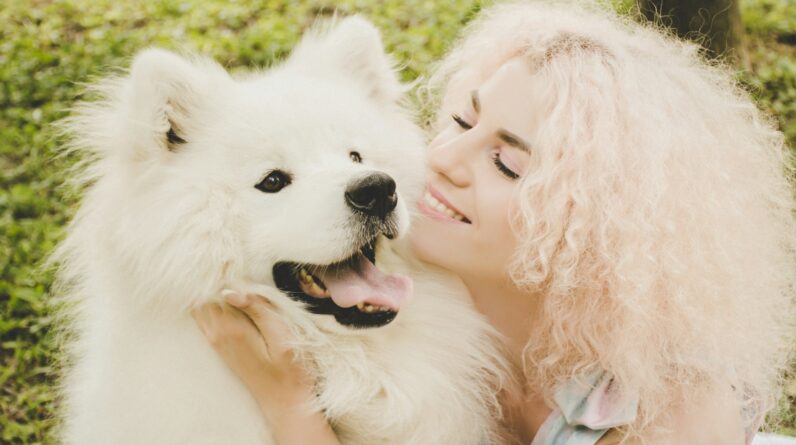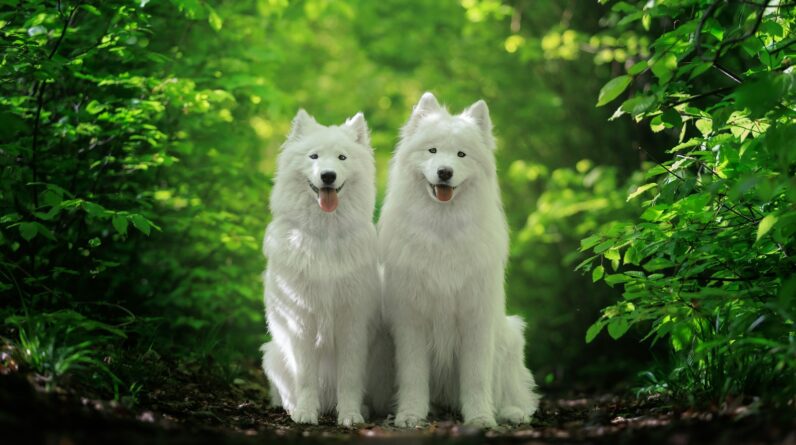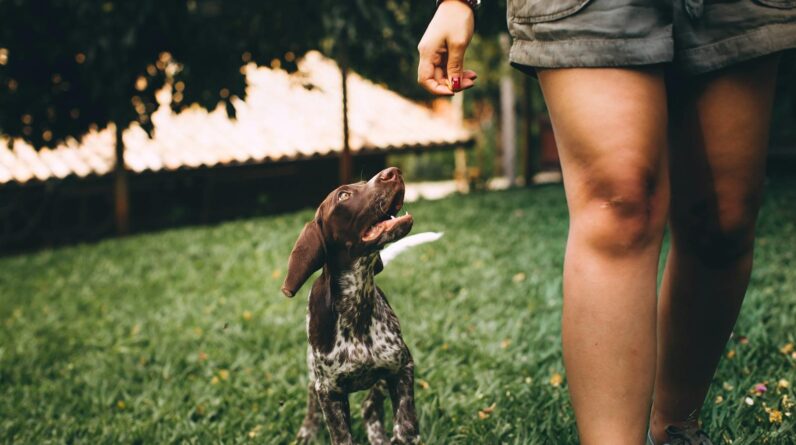
Why Do Dogs Act Like They Do? It’s in Their Genes!
Hey there, dog lovers! Ever wondered why your furry friend acts the way they do? Some of it is because of training, but a big part of it comes from their genes. That’s right, just like you inherit the color of your eyes from your parents, dogs can inherit how they behave from their doggy moms and dads.
What Are Genetics?
Imagine you got a set of building blocks from your mom and another set from your dad. You put them together to build, well, you! Something like this happens with dogs too. Genetics is like the recipe book for building every part of a living thing, and that includes how a dog acts.
DNA: The Blueprint of Doggy Behavior
Deep inside every cell in a dog’s body is DNA. This is the master plan telling them how to grow, what color their fur should be, and even how to behave. Some dogs are born to be super friendly, some are amazing at herding sheep, and others are just natural-born couch potatoes. And it’s all because of that DNA blueprint.
Breeds and Behaviors
Have you noticed how different dog breeds act differently? That’s because people have been mixing dog genes for hundreds of years to bring out certain traits. Like a Border Collie is made to have the brains and speed for herding, while a Chihuahua is tiny and feisty, great for being a lap dog. Their genes are telling them to act like this!
Personality Pups
Ok, so your dog kind of gets their personality from their doggy parents. Some dogs are just super chill, others are always ready for a game of fetch, and some might be shy around strangers. This isn’t just training; it’s in their genes. It’s super cool to think that a dog’s family tree can shape how they wag their tail or ask for treats, isn’t it?
Genes Aren’t Everything
Hold on, though! Genes are a big deal, but they aren’t the whole story. How you raise and train your dog, the friends they play with, and the experiences they have are all important too. But it’s good to remember that some things come from their genes, which helps us understand and love them even more.
Genetics and Dog Jobs
Ever seen a police dog in action or a service dog helping someone? Many of these dogs are chosen because their genes make them awesome at these jobs. Like, some dogs have a family history of being really good at smelling things, which makes them superstars at finding stuff. That’s why certain dogs are better at some jobs than others.
Moods and Health
Your dog’s mood can swing just like yours can. Believe it or not, genes play a part in this too. Some dogs might get nervous more easily or be extra happy most of the time because of their genetic makeup. Just like humans, dogs can also have health issues because of their genes, which can affect how they feel and act.
Fun Doggy Facts
Here’s something neat: the reason some dogs like to dig holes or chase their tails can be traced back to the jobs their ancestors used to do. These old habits stick around because of, you guessed it, genetics!
Love Your Unique Pup
Understanding genetics helps us see why our dogs are special in their own way. When we know that some of their actions are just part of their doggy DNA, we can be patient and teach them how to be the best pup they can be. After all, just like us, every dog is one of a kind!
So next time your dog does something silly or smart, think about those genes. Maybe it’s not just about the treats or training. It’s a little look into the story of their doggy family going back a long, long time.
And remember, no matter what genes your dog has, they’re your best friend, and that’s what really counts!
How much does genetics influence my dog’s behavior?
Genetics play a big role in your dog’s overall personality and tendencies. Just like with humans, certain traits can be passed down from their parents. For example, some breeds are known for being great with kids, while others might have a strong herding instinct.
But it’s not all about genes. Environment and upbringing also shape your dog’s behavior. Training, socialization, and your pup’s daily experiences will all contribute to the unique doggo they become.
Can I predict my dog’s behavior based on its breed?
Breed can give you clues about your dog’s behavior. Retrievers, for instance, often love to fetch, and herding breeds might try to round up the family. But remember, every dog is an individual, and they might not fit their breed’s typical behavior to a T.
It’s also worth noting that mixed-breed dogs can have a wide range of behaviors inherited from multiple breeds. Observing and getting to know your canine buddy is the best way to understand their personality.
Do genetics determine if my dog will be aggressive?
Genetics can influence a dog’s potential for aggression, but it’s not the whole story. Certain breeds might have a reputation for being protective, which could be seen as aggression. It’s important to know the difference between aggression and a dog simply doing what’s in their nature.
Upbringing and training are huge factors, too. A dog raised in a loving, structured environment is less likely to show unwarranted aggression. Always work on positive socialization and training from a young age to guide your doggo’s behaviors.
Is my dog’s anxiety related to genetics?
Definitely, genetics can influence a dog’s likelihood to experience anxiety. Some breeds are more predisposed to it than others, especially those bred for high-energy jobs. Without enough mental and physical stimulation, they might feel anxious or stressed.
However, anxiety isn’t just inherited. Traumatic events and lack of early socialization can contribute to an anxious disposition. Providing a safe, supportive environment and plenty of positive experiences can help ease your pup’s anxiety.
Can genetic testing help with behavior training?
Genetic testing can shed some light on your furry friend’s background, which might help explain certain behaviors. If you discover your pup has herding breed genes, for example, you’ll understand why they chase cars or corral your kids.
Knowing your dog’s genetic makeup can help you tailor their training to suit their natural inclinations. It can help you use their instincts to your advantage in training exercises, making the process more effective and enjoyable for both of you.
Key Takeaways
- Dog genetics are a big deal when it comes to their behavior. Just like you inherit traits from your parents, dogs do too, and that includes the way they act.
- Breed-specific traits are totally a thing. Like, if you have a Border Collie, chances are it’ll want to herd stuff because it’s in its genes. Knowing your dog’s breed can clue you in on its natural tendencies.
- It’s not just about the breed, though. Individual differences matter, so two dogs of the same breed can behave differently. It’s like how siblings can have totally different personalities.
- There’s this idea called nature vs. nurture, and it’s super important for dog behavior. It’s not all about genetics—how you raise and train your dog plays a big part in how it behaves.
- There are some tests you can do these days to figure out your dog’s genetic makeup. This can help you understand and predict certain behaviors, potentially making training and living together easier.
- Also, there’s ongoing research digging into the connection between dog genes and behavior. The more science learns, the better we can understand our furry friends and help them live happy lives.
- If you’re thinking of getting a dog, looking into its genetic background can be a smart move. It can help you choose a pooch that’s a good fit for your lifestyle. For instance, if you’re a couch potato, maybe steer clear of a breed that’s all about that high-energy life.
- Lastly, remember that while genetics have a role to play, your input is huge. Training, socialization, and the environment you provide will shape your dog’s behavior big time. So, always give your pup love, structure, and the chance to be the best they can be.
Final Thoughts
Genetics hands your pup a set of behaviors straight out of the womb. Yep, that chasing drive your terrier has or your sheepdog’s herding obsession? It’s in their DNA. But it’s not the whole story. Training and environment work hand-in-hand with genes to shape your doggo’s personality.
And remember, just because genetics loaded the gun doesn’t mean the environment can’t pull the trigger. A pup with guard dog genes might be a couch potato if they’re raised in a chill home. Meanwhile, a dog bred for cuddles could turn into Mr. Feisty if they’re always in a tense spot.
So, don’t just blame the breed if your furry pal acts up—genes start the race, but life’s experiences run it. Work with what your dog’s mama and papa gave them and give them the best shot at being a well-behaved, tail-wagging best friend.







